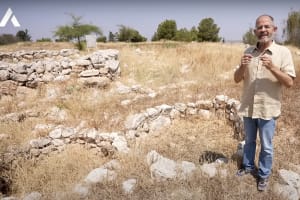Hakafot: Encircling the bridegroom

“How delightful is your love, my sister, my bride! How much more pleasing than wine, and the fragrance of your perfume more than any spice!” Song of Solomon 4:10
There is a beautiful, centuries-old Ashkenazi tradition which takes place during a Jewish wedding ceremony, when the bride, or the Kallah, encircles the groom seven times before she comes under the wedding chupah (canopy)… think Tzeitel and Motel in the well-known classic, Fiddler on the Roof.
Today, there are different variations of this practice, and in some cases, both the bride and the groom encircle one another to demonstrate their genuine commitment and symbolically acknowledge the beginning of a new life together. It is mesmerizing to watch, as the bride encircles the groom seven times, focusing all her attention on her beloved, and the groom, with a steady gaze, follows her every move as he becomes increasingly aware of the deep love and affection he feels for her.
This practice of encircling, or hakafot, is not only done at weddings, but it is also done with the Torah around the altar during some Jewish holidays, like Simchat Torah and Sukkot. More than just a religious practice, the seven times of circling is rooted in the biblical number of completion and is rich with symbolism found throughout both the Old and New Testament. It also holds special meaning this time of year as we approach the High Holy Days or the Fall Feasts of Israel.
Every year at this season, the first day of the Hebrew month of Elul marks the beginning of a preparation period before Yom Teruah (The Feast of Trumpets) and continues to Yom Kippur (The Day of Atonement). During this time, as well as every day throughout the year, scripture invites us to take part in something very much like the practice of hakafot.
Just as a bride spends weeks or months before the wedding preparing herself for the day when she will fully commit to the groom, and the groom has spent months preparing a home and place of provision and protection for his bride, the month of Elul is an opportunity for us to prepare ourselves for a renewed dedication to God. As his bride, we are called to a special time of fasting and prayer, as well as a deep time of reflection and intimacy with the Messiah, who is our beloved. As we seek his face continuously, and “encircle” him with prayer, we place our attention solely on him, preparing ourselves for a renewal of commitment, much like the renewal of marriage vows.
In Psalm 141:2, God describes our prayers and adoration like “the sweet smell of incense”. Like a bridegroom, he is enraptured with us, his bride. And with the same intense affection and love Solomon declared for the Shulamite three thousand years ago, Yeshua declares over us, “How delightful is your love, my sister, my bride! How much more pleasing than wine, and the fragrance of your perfume more than any spice!”
It is a sacred dance and holy exchange he invites us into, culminating in a deeper connection between us and the lover of our souls. Even within the letters that make up the Hebrew word Elul is an acronym which stands for, “I am my beloved’s, and my beloved is mine.”
The Fall Feasts of Yom Teruah are prophetic foreshadows of the coming of the Messiah and the marriage of the Lamb. In this season, Yeshua is calling us to focus even more intently on Him as he watches and waits for the appointed time when he will come back for his beloved bride.
As we begin the month of Elul and enter this time of preparation, the voice of the bridegroom is calling, “Rise up, my love, my fair one, and come away! You have ravished my heart, my sister, my bride; You have ravished my heart with one glance of your eyes.” (Song of Solomon 4:9,10)
-(1).jpg)
Avigayil Rivkah is a writer and speaker on the Jewish roots of the
Christian faith, Jewish culture and Israel news. She is a Jewish
believer in Jesus and writes at ajoyfuljewishjourney.com
You might also like to read this:

















